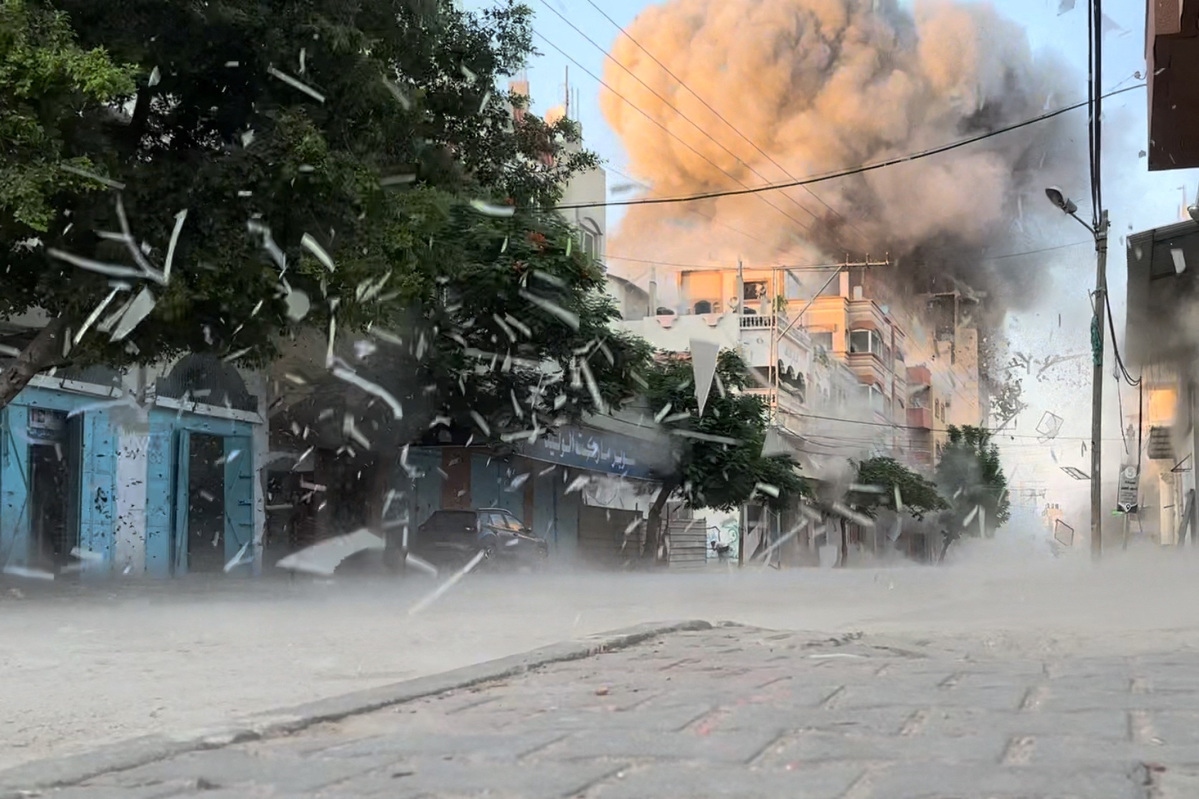Seize every cease-fire chance in Gaza: China Daily editorial


In a seemingly positive step toward achieving a truce in Gaza, US Secretary of State Antony Blinken said on Monday that Israeli Prime Minister Benjamin Netanyahu had accepted a "bridging proposal" presented by the United States to tackle disagreements blocking a cease-fire deal in the territory, and urged militant group Hamas to do the same.
The top US diplomat, on his ninth trip to the region since October, said it was a "decisive moment", and "maybe the last" opportunity to secure a cease-fire and free the Israeli hostages being held by Hamas. However, he said that even if Hamas accepts the proposal, negotiators will have to spend the coming days working on "clear understandings on implementing the agreement", adding there are still "complex issues" requiring "hard decisions by the leaders".
Israel started the war against Hamas after the group's cross-border Oct 7 attacks in which more than 1,200 Israelis were killed and 250 taken hostage, according to Israeli authorities. More than 100 of those hostages remain in Hamas' hands in Gaza. The peace deal currently under discussion calls for a three-phase process in which Hamas would release all the Israeli hostages, in exchange for the Israeli forces' withdrawal from Gaza and a release of Palestinian prisoners.
Such a deal is desperately needed given the dire situation in Gaza after more than 10 months of the Israeli campaign to wipe out Hamas, which has basically devastated the territory and plunged the 2.3 million Palestinians living there into an "epic humanitarian catastrophe". Israel's military operations in Gaza have killed more than 40,000 Palestinians, according to local health authorities.
The ongoing peace talks have gained a sense of urgency in recent days after the targeted killings of Hamas' political leader in Teheran, capital of Iran, and a top commander of military group Hezbollah in Lebanon that were blamed on Israel. The assassinations have raised fears of a larger scale regional war as Iran and Hezbollah have vowed revenge. Many believe that should a peace deal be forthcoming, it would help prevent any further escalation of tensions and diminish the chance of a full-scale war.
The major obstacle to reaching an immediate cease-fire comes from the deep mistrust that Hamas harbors of the US as a mediator, which the group believes is siding with Israel. Hamas has accused Israel of trying to prolong the war with new conditions set in the peace deal. Other remaining sticking points include the number of Palestinian prisoners to be released and how far back Israeli forces should withdraw.
While details of the latest "bridging proposal" are still unavailable, there are concerns how far it will go, given the strong opposition that exists within Israel to any compromise with Hamas. Some far-right members of Netanyahu's governing coalition have previously threatened to withdraw their support for Netanyahu should there be a cease-fire deal that stops short of Hamas' total destruction.
Given all this, it will be extremely hard to clinch a cease-fire deal. Yet despite that, the international community must not cease making efforts to contribute to a permanent and comprehensive cease-fire in Gaza, and work together to bring an end to the conflict there as soon as possible. The US, in particular, has an obligation to spare no efforts to rein in the radical forces in Israel so as to prevent the peace process from being derailed, again.


































